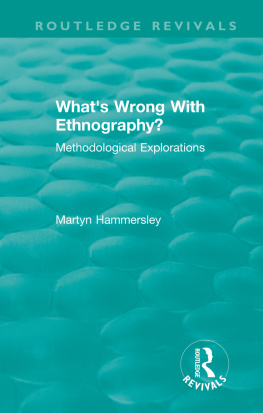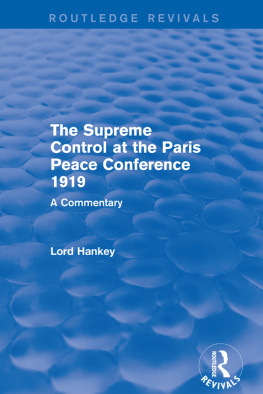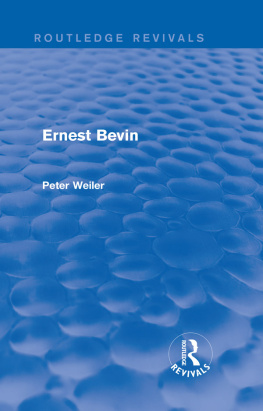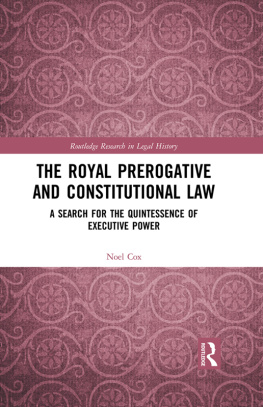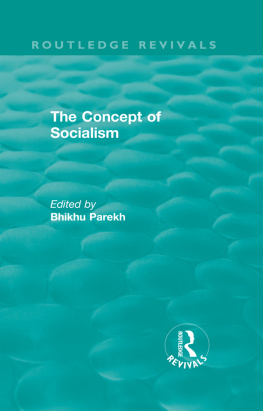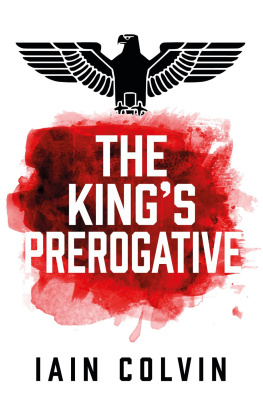Routledge Revivals
Managerial Prerogative and the
Question of Control
In both Marxist and non-Marxist scholarship there has been a remarkable neglect of the managerial control of labour. John Storeys analysis of the modern labour process shows that managerial control is in fact more precarious than has been so far recorded. This book, first published in 1983, reassesses the Braverman theory of the inexorable degradation of work, and demonstrates the need to go beyond not only Braverman but also most of the ensuing attempts to complement or repair his underlying thesis. The book will be of interest to students of the social sciences.
Managerial Prerogative and the
Question of Control
John Storey
First published in 1983
by Routledge & Kegan Paul Ltd
This edition first published in 2015 by Routledge
2 Park Square, Milton Park, Abingdon, Oxon, OX14 4RN
and by Routledge
711 Third Avenue, New York, NY 10017
Routledge is an imprint of the Taylor & Francis Group, an informa business
1983 John Storey
The right of John Storey to be identified as author of this work has been asserted by him in accordance with sections 77 and 78 of the Copyright, Designs and Patents Act 1988.
All rights reserved. No part of this book may be reprinted or reproduced or utilised in any form or by any electronic, mechanical, or other means, now known or hereafter invented, including photocopying and recording, or in any information storage or retrieval system, without permission in writing from the publishers.
Publishers Note
The publisher has gone to great lengths to ensure the quality of this reprint but points out that some imperfections in the original copies may be apparent.
Disclaimer
The publisher has made every effort to trace copyright holders and welcomes correspondence from those they have been unable to contact.
A Library of Congress record exists under LC control number: 82018572
ISBN 13: 978-1-138-82257-3 (hbk)
ISBN 13: 978-1-315-74245-8 (ebk)
ISBN 13: 978-1-138-82262-7 (pbk)
MANAGERIAL PREROGATIVE
AND THE QUESTION OF
CONTROL
JOHN STOREY
ROUTLEDGE & KEGAN PAUL
London, Boston, Melbourne and Henley
First published in 1983
by Routledge & Kegan Paul Plc
39 Store Street, London WC1E 7DD,
9 Park Street, Boston, Mass. 02108, USA,
296 Beaconsfield Parade, Middle Park,
Melbourne, 3206, Australia, and
Broadway House, Newtown Road,
Henley-on-Thames, Oxon RG9 1EN
Printed in Great Britain by
Redwood Burn Ltd,
Trowbridge, Wiltshire
John Storey 1983
No part of this book may be reproduced in any form without permission from the publisher, except for the quotation of brief passages in criticism
ISBN 0-7100-9203-2
CONTENTS
This book is about the contemporary struggle over the control of work. Accordingly, it is a study of the capitalist labour process. The last couple of decades have been witness to a dramatic clash over the control of production; the much-vaunted managerial resurgence came hard on the heels of the second shop stewards movement which had just reached its zenith. De-manning and new work practices have been forced through in a context of redundancy, plant closures and high unemployment. But to interpret the real social, political and economic significance of such events demands that they be placed in historic and theoretical context. One version sees managerial prerogative as having suffered secular erosion; in contrast, Braverman and his followers view the twentieth century as a period of inexorable degradation of work, the ascendancy of Taylorism and the destruction of immemorial craft prerogative. Marxs theory of real subordination of labour and Webers rationalisation thesis would seemingly lend support to the latter account.
Our analysis of the modern labour process reveals, however, a more complex picture. It is shown to be necessary to go beyond Braverman and Friedman and in so doing also to reappraise the marxian analysis. The theoretical strand running through the text is dialectical. There is an unwavering focus upon managerial strategy and worker resistance. Braverman, it is argued, reified Taylorism as the device in capitals mission to secure control over the labour process. Garnering the myriad critical reviews of the Braverman thesis, we argue that their ostensible variety obscures an underlying consistency that the shortcomings of Bravermans influential thesis results from the absence of a dialectic. One central consequence is an over-rationalised conception of managerialism. The thrust of our argument is that managerial control is in fact more precarious and more variegated. The concept of managerial prerogative is subjected to close scrutiny. It is treated as pivotal in the ideological armoury of modern capitalism. But again its status as a legitimating device is shown to be not unassailable. An ineradicable question-mark hangs over the control by management over the labour process and also over the control of management itself. So while the analysis is wide-ranging and one which certainly subscribes to the logic of a political economy of work control, another kind of amendment is made to past analyses of the control of work and the capitalist division of labour, namely, a more central focus is given to the activity of management albeit linked to a thoroughly sceptical appraisal of practical managerial strategy.
The book is addressed primarily to graduate and undergraduate students of the social sciences, in particular to those studying industrial sociology, industrial relations, and organisation theory. It is intended to dissolve the traditional boundaries between these disciplines with a view to defying the re-erection of the familiar barriers. While the underlying thrust is sociological the analysis is intended to be radical and to cast doubts upon the territorial integrity of even that broad church.
I would like to thank the Social Science Research Council for grants which financed the research out of which this present book grew. I am indebted also to the librarians at Trent Polytechnic, in particular to Linda Dean and Alison Smith. Valuable comments upon the manuscript were made by Howard Gospel of the University of Kent, Stephen Wood of the London School of Economics and by Peter Cressey and John McInnes of Glasgow University. Students and colleagues at Trent Polytechnic shaped the final outcome immeasurably.
In both marxist and non-marxist scholarship there has been until recently, a remarkable neglect of the managerial control of labour. Even today this neglect stands only partially remedied. Yet in the current conjuncture with a deep recession emboldening top management in a resolve to reverse the post-war challenge from below, this issue demands even more urgent analysis. Interpretation of contemporary developments in work control has been significantly hampered by this relative theoretical hiatus.
Indices of a more hawkish managerial approach are legion. Ironically, the man who was persuaded by Tony Benn to act as chairman of the KME workers co-operative (though he remained for less than a month) has articulated the new mood more forcibly than most. At a seminar he convened for managing directors and personnel managers, Len Collinson, a director of numerous companies and a chairman of Collinson Grant Consultants, declared:




